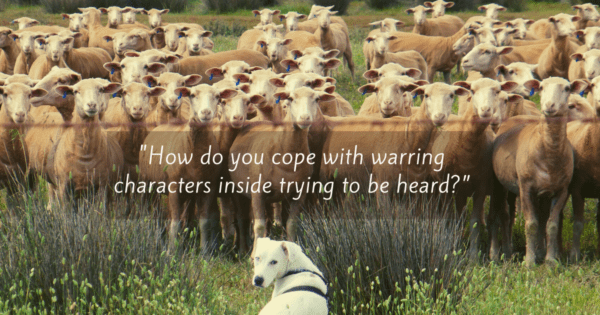“How do I describe it when a part of me is reacting to a part in the other?”
Vicky asks: “I’ve recently found that when I’m describing an interaction with someone during a Focusing session, my companion notices that a part of me is interacting with (or reacting to!) a PART of the other person.
“For instance, I was doing a session with a part of me that has a hard time listening to advice from a friend of mine. Then my companion gave a reflection that sparked a realization that this strong advice is coming from a part of my friend that doesn’t want to find itself mistreated. I see my friend differently now, with more compassion rather than with resentment. So that seems helpful!
“Clearly, it isn’t my friend’s Self-in-Presence saying, ‘You should just tell that person off and never speak to them again!’ But could it complicate a Focusing session too much to give reflections like, ‘Something in you is letting you know that it feels resentful when it hears that part of your friend that expresses opinions so strongly about how not to be mistreated.’ How would you suggest we handle this during a Focusing session?”
Dear Vicky,
Interesting! Parts react to other parts… both in ourselves and other people. And when other people are not Self-in-Presence, it’s harder to be Self-in-Presence ourselves. When other people are caught up in reactive states, it’s hard not to be reactive in return. Thus emotions and impulsive actions escalate.
Luckily, the opposite is true. When one person can move into being Self-in-Presence, that has a calming, centering effect on all the other people in the situation.
So Vicky, you found it helpful, and it brought compassion, to realize that the strong reaction of a part of you was to a friend speaking, not from Self-in-Presence, but from a part of him that he was merged with. And it was something that your Companion said that helped you realize that.
But you rightly sense that if we always name all the parts we can possibly be aware of, in ourselves and in others, that would lead to very long sentences!
Even more though, the Focuser may not be ready yet to have compassion for the other, or to see that this is a part in the other. I might first need to have compassion for myself, and do some exploring of my own reactive parts. Nobody can really know, from outside, what the Focuser is ready for.
And that’s why we generally stay pretty close to what the Focuser is saying when we reflect back… because it’s the Focuser’s process, and that process can be trusted to find its way forward if given space to do that.
Sorting out what is going on in the situations that the Focuser is talking about is not the Companion’s business. Our job as Focusing Companion is to follow and support the process in the person in front of us. True, sometimes the way we say something helps the Focuser have an insight or experience a shift. But we can’t do it on purpose. We’re trying to just stay present and true to the Focuser’s own process.






